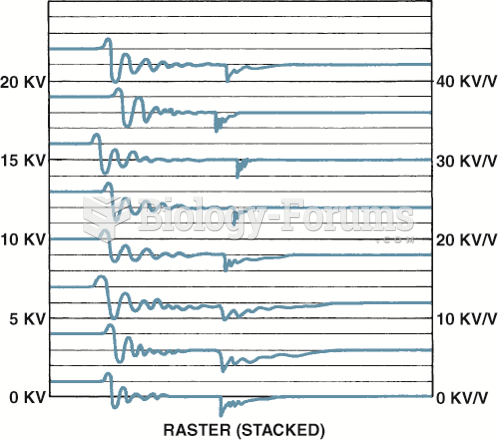|
|
|
The National Institutes of Health have supported research into acupuncture. This has shown that acupuncture significantly reduced pain associated with osteoarthritis of the knee, when used as a complement to conventional therapies.
Adolescents often feel clumsy during puberty because during this time of development, their hands and feet grow faster than their arms and legs do. The body is therefore out of proportion. One out of five adolescents actually experiences growing pains during this period.
Approximately 25% of all reported medication errors result from some kind of name confusion.
There are more sensory neurons in the tongue than in any other part of the body.
A seasonal flu vaccine is the best way to reduce the chances you will get seasonal influenza and spread it to others.







